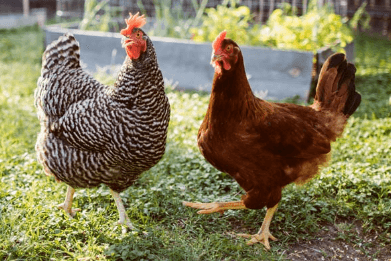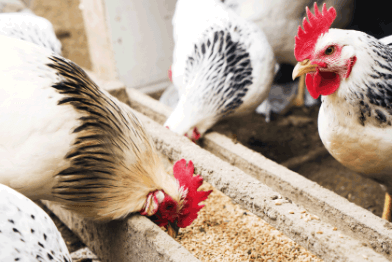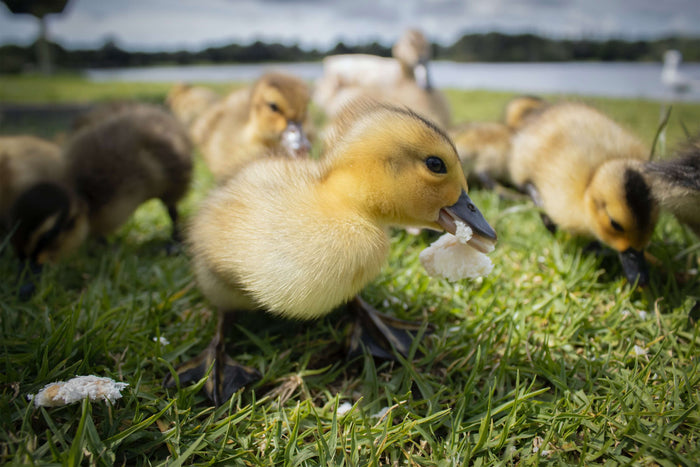What Do You Need to Start Raising Backyard Chicken?

When thinking about joining the chicken-keeping contingency, make sure to understand all of the important things you will need to start raising backyard chicken.
To a first-time chicken-keeper, the task of keeping your chickens healthy and safe might sound very challenging. However, in reality, raising backyard chicken is quite simple once you’ve learned the essential tips and tricks.
Chickens, out of all the birds, are the easiest to keep so after getting the basics right, you'll soon be able to reap the benefits, whether you keep chickens for their eggs or company. So let's dive into it and find out the essentials before you start raising backyard chicken.
Ordinances in Your Area
Before starting, do detailed research about the laws of chicken-keeping in your area. In some cases this could be a country-wide regulation, in others it may be a local state or town.
Some areas have restricted livestock to agriculturally-designated zones. Others have banned roosters due to their noise. Likewise, there are cities where chickens have to stay in their coop at all times. This means they cannot live free-range.
While your neighbors are not lawmakers (unless they actually are), you also probably don't want to introduce a rooster call at 5am to their life. That is unless your neighbor is not that near you or keeps backyard chickens as well.
After all, it’s always better to be safe than sorry.
What Type of Chickens Do You Want?
There is a wide breed of chickens. Ranging from cuddly and loving to anxious and flighty, each chicken breed has its own qualities.
If you want to raise chickens for meat, you would get a broiler breed. One of the common options would be a Cornish Cross. If you're going going after the eggs then a Leghorn would be a better choice. If you live in a cold area, you would be better off choosing a breed which better copes during winter such as Australorp. You get where this is going - there are many chicken breeds and some may be better suited to your climate, overall goals from chicken keeping as well as other factors.
Visit a local hatchery or join local groups on Facebook and Telegram and you'll soon get some good advice on what breed can be found in your area.
Adequate Space
Building a safe and happy chicken coop with ample space and privacy should be your priority when deciding to raise chickens. Here’s a list of things you should consider to include in your cage where your hens will live, play and lay eggs:
- Comfortable Bedding: Sun-colored straw with its sweet earthy smell and springy texture will be a great bedding choice. Try to avoid sawdust as it is too dusty.
- Nesting Box: To lay eggs, hens require a dark area where they can have privacy. Planning for a nesting box would be a great idea.
- Hanging Feeder and Waterer: Keeping it off-ground will preserve freshness. Additionally, place it inside your henhouse to keep unwanted animals away from the food.
- Coop Safety: Know the potential predators in the area and ensure your coop offers sufficient protection from unwanted guests.
That’s all you’ll need in your chicken house to start raising backyard chicken!
Health and Hygiene of Your Chickens
Once you've brought your pet chickens home, make sure to perform your daily, monthly, and semi-yearly care to keep your chickens fit and healthy.
On a daily basis, clean and refill the water to prevent dehydration of your chickens. In addition, collect their eggs to maximize freshness. Take some time to observe them on a daily basis to make sure that they are in good health.
Every month, manage your chickens' bedding, freshen their nest boxes, and sanitize the waterers.
Finally, every six months, you should deep clean your chicken coop and prepare for the winter.
What else do I need to know about raising backyard chickens?
Raising chickens may be an exciting experience, but you need to know some essential tips beforehand:
- Make sure you know or can reach out to a chicken expert for professional advice.
- Chickens may lay their eggs at unpredictable times.
- Raising chickens can get messy so be ready to roll up your sleeves and be aware that however clean your coop and birds are, it won't smell like your rose garden.
- Buy a coop instead of building one. This will save a lot of time and frustration if you are not adept at carpentry.
How many chickens should a beginner start with?
Chickens prefer to live in flocks. Therefore, you should keep at least two chickens.
Additionally, if you have a big family, it would be an excellent option to have a flock of five or six hens. This would provide you with two dozen eggs per week.
What can I feed my backyard chickens?
Here are some budget-friendly feed suggestions that your chickens will enjoy:
- Wheat
- Corn
- Peas
- Barley
- Any kind of grubs as treats (we of course recommend Supreme Grubs black soldier fly)
Conclusion
Raising chicken in your very own backyard may sound like an adventurous and thrilling experience.
Things may not go as smoothly at first but get familiar with the basics, learn as you go, and you'll soon be the one advising others about backyard chicken keeping.


